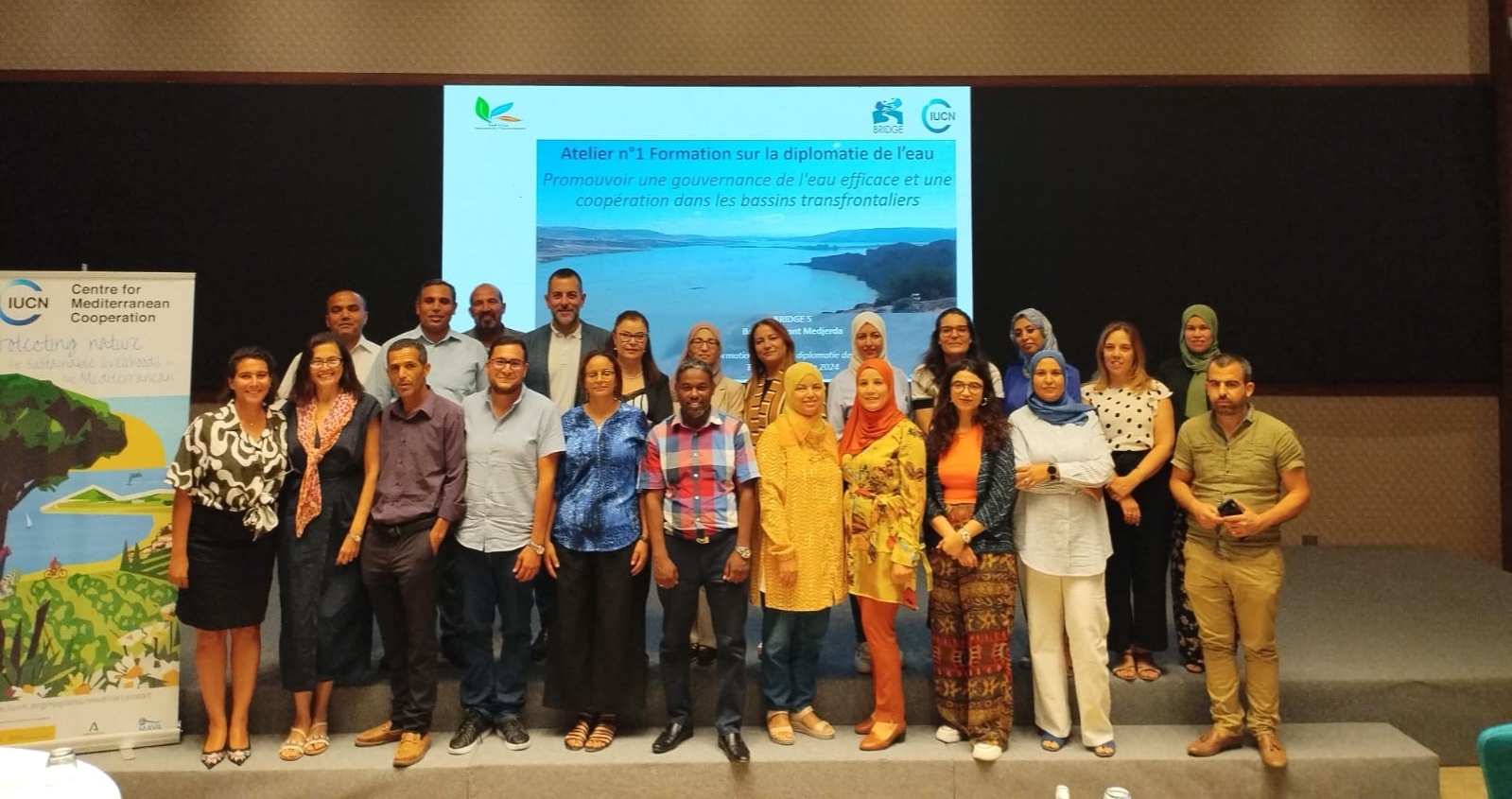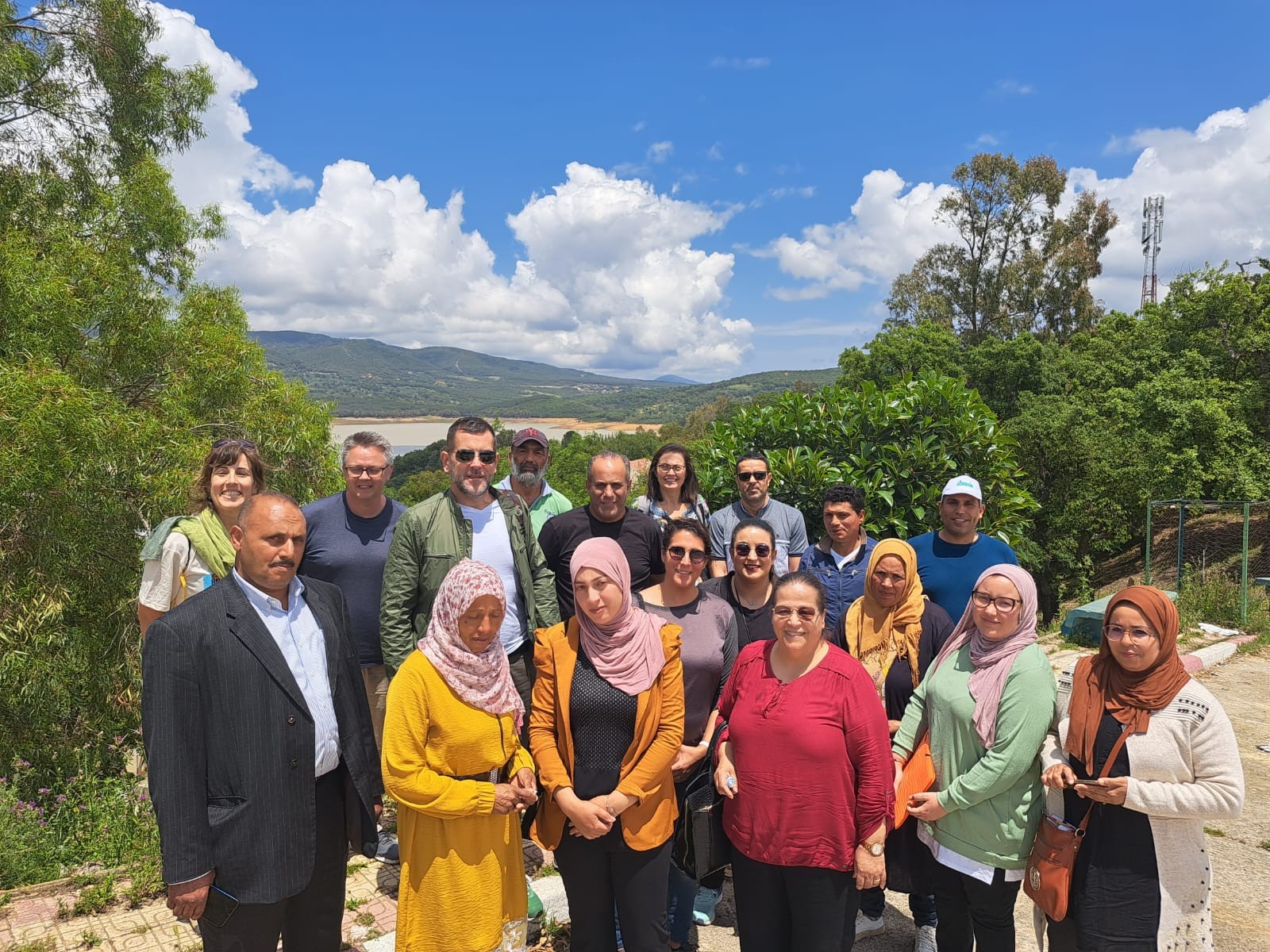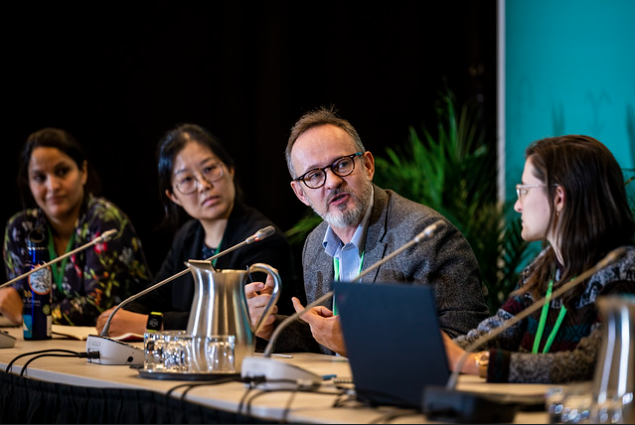"Let us recover our ambition for a more sustainable Mediterranean"- by IUCN-Med Director
In this open letter, Antonio Troya, the Director of the IUCN Centre for Mediterranean Cooperation, reflects on the progress made in the last 20 years in the Mediterranean region, besides outlining the current and future challenges faced by nature and human societies to prepare for a new Decade of Action.
Despite the progress made in the last 20 years to advance the environmental agenda in the Mediterranean, the livelihoods of its populations continue to be exposed to major pressures, including rising sea temperatures, more frequent heat waves, reduced water availability, increasing pollution, soil degradation, invasive alien species or overfishing.
Whereas we have seen economic inequalities decrease in the region, the COVID 19 crisis has slowed down the pace at which the gap is being reduced.
For the millions of people who live on the Mediterranean coast - and the millions more who visit it every year- the Mediterranean continues to evoke beauty, pleasure, leisure, food and prosperity, culture and history. However, this social imaginary collides with the critical situation of some of the habitats and ecosystems in the region caused by our current type of lifestyle and consumption patterns. This breach is a consequence of the progressive trivialization of our natural heritage, where nature has ceased to be part of the social and economic agenda and of our most vital experiences.
Although we don’t know when the point of no-return will be reached in the collapse of our ecosystems, science warns that it will reach us sooner rather than later. For the more than 500 million inhabitants of the region, the current challenge is tackling the effects of climate change and biodiversity loss. This situation affects the rest of the planet, but in the Mediterranean the temperature is increasing 20% faster than the global average according to the latest IPCC report, a highly aggravating circumstance.
Throughout history, the iconic Mediterranean landscape has shown us that climate, nature and human well-being are strongly interconnected. And we now know that the destruction of our ecosystems undermines nature's ability to regulate greenhouse gas emissions and protect itself from extreme weather events.
Now more than ever, our action on climate and nature needs to be aligned with all public policies, the activity of the private sector and actions of citizens. This will require rapid and profound change in all sectors of our economy. All conservation organisations such as IUCN will need to place greater emphasis on communicating the socio-economic values of preserving Mediterranean ecosystems, revitalizing social dialogue on the conservation of nature and broadening the social base to promote a transversal process of commitment where any person or institution contributes with new ideas in favor of nature.
In the Mediterranean political context we have strong and consolidated institutions such as the Barcelona Convention, the Union for the Mediterranean or the FAO General Fisheries Commission for the Mediterranean, as well as national, sub-regional and local governments who are advancing their environmental agendas, alongside with more mature and powerful civil society organizations. But we need to be more ambitious and accelerate the agendas for climate action and biodiversity conservation, while making these converge.
We now have a great opportunity, thanks to our knowledge and technological progress, to embrace actions that harness the power of nature, recover the traditional knowledge of our ancestors and combine them with technological advances. Protecting and restoring coastal ecosystems and wetlands, enhancing management and use of our forests, restoring riverbanks and recovering natural riverbeds, promoting sustainable food chains through agroforestry, as well as promoting more green and blue spaces in our cities and their surroundings are clear examples of Nature-based Solutions. By protecting and recovering the functions of natural ecosystems we can help prevent floods and droughts, reduce environmental degradation and increase territorial resilience.
On the other hand, we have to remember that water is our most precious asset in the region. Farmers, increasingly populated and consuming cities, and the burgeoning tourism industry all feed off the same dwindling reserves. For these reasons, we have to opt for more sustainable agricultural practices, while citizens stick to more responsible consumption patterns.
All these changes can be made possible through cooperation: cooperation between economic sectors, between institutions, between citizens, between governments. On the occasion of the 20th anniversary of the IUCN Center for Mediterranean Cooperation, we reaffirm cooperation as the main axis of our work and strategy to promote the best policies and practices, which contribute to conserve nature and manage natural resources sustainably in the region.
In this Decade of Action, we will continue to follow this path. It is our responsibility and it is an opportunity for all of us who aspire to a healthier and more prosperous region through a fair and equitable economic and social transformation.
Antonio Troya
Director of the IUCN Center for Mediterranean Cooperation
References
IPCC (2022). Climate Change 2022: Impacts, Adaptation and Vulnerability. Contribution of Working Group II to the Sixth Assessment Report of the Intergovernmental Panel on Climate Change. Retrieved from https://www.ipcc.ch/report/ar6/wg2/
Disclaimer
Opinions expressed in posts featured on any Crossroads or other blogs and in related comments are those of the authors and do not necessarily reflect the opinions of IUCN or a consensus of its Member organisations.
IUCN moderates comments and reserves the right to remove posts that are deemed inappropriate, commercial in nature or unrelated to blog posts.



